To provide the best experiences, we use technologies like cookies to store and/or access device information. Consenting to these technologies will allow us to process data such as browsing behaviour or unique IDs on this site. Not consenting or withdrawing consent, may adversely affect certain features and functions.
The technical storage or access is strictly necessary for the legitimate purpose of enabling the use of a specific service explicitly requested by the subscriber or user, or for the sole purpose of carrying out the transmission of a communication over an electronic communications network.
The technical storage or access is necessary for the legitimate purpose of storing preferences that are not requested by the subscriber or user.
The technical storage or access that is used exclusively for statistical purposes.
The technical storage or access that is used exclusively for anonymous statistical purposes. Without a subpoena, voluntary compliance on the part of your Internet Service Provider, or additional records from a third party, information stored or retrieved for this purpose alone cannot usually be used to identify you.
The technical storage or access is required to create user profiles to send advertising, or to track the user on a website or across several websites for similar marketing purposes.
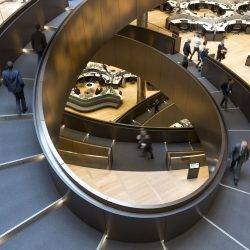 The humble office doesn’t always feature prominently in RIBA’s annual Stirling Prize list but last night, Bloomberg’s European headquarters was named the UK’s best new building. The 2018 RIBA Stirling Prize judges were unanimous in their decision to award Bloomberg the 2018 RIBA Stirling Prize describing it as a “once-in-a-generation project”. RIBA President, Ben Derbyshire says it is a “monumental achievement”. It’s the second award bestowed on the project in the last week. The BCO has already declared the building the UK’s best workplace. More →
The humble office doesn’t always feature prominently in RIBA’s annual Stirling Prize list but last night, Bloomberg’s European headquarters was named the UK’s best new building. The 2018 RIBA Stirling Prize judges were unanimous in their decision to award Bloomberg the 2018 RIBA Stirling Prize describing it as a “once-in-a-generation project”. RIBA President, Ben Derbyshire says it is a “monumental achievement”. It’s the second award bestowed on the project in the last week. The BCO has already declared the building the UK’s best workplace. More →




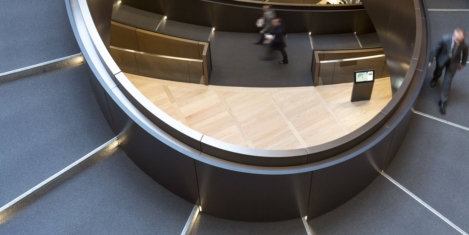
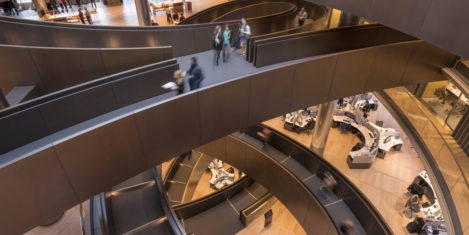
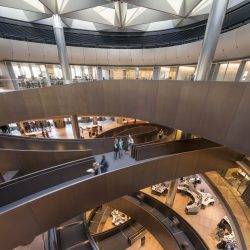
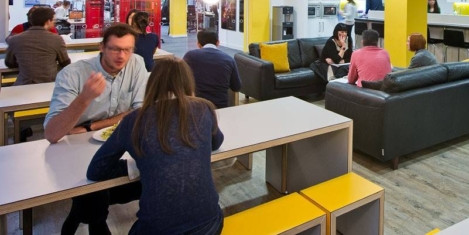
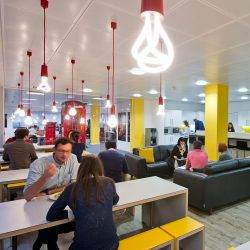
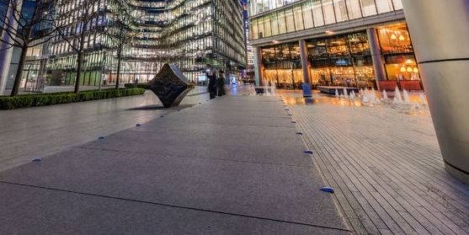






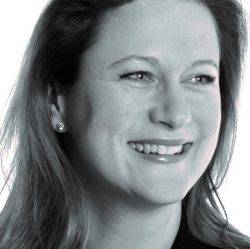


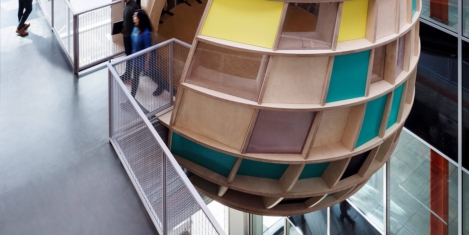
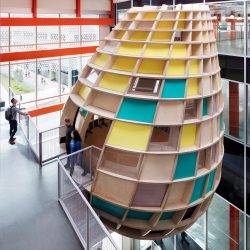














January 4, 2019
Why new technology can still make employees happier, healthier and more efficient
by Elaine Rossall • AI, Comment, Flexible working, Lighting, Technology, Wellbeing
For many years, we became used to new technology being treated with excitement. Essentially, people thought technology made their lives better. More recently this consensus has been tested. On a very practical level, there is growing concern about the impact of everyday technology. ‘Screen-time’ has become a byword for anxiety and disengagement from the real world. Meanwhile, there is trepidation about the impact of future technology, such as the automation of jobs. Whilst caution is needed, there is a danger that we are forgetting the many benefits technology can bring. As an example, look to the workplace. Already, offices are gaining hugely from technology that benefits employee wellness and productivity. However, we have only just begun to feel its impact. A ‘fast’ office may sound like an oxymoron. A building isn’t going to win a 100-metre race. Yet fast offices, which allow employees to control their immediate environment, are becoming increasingly common.
More →